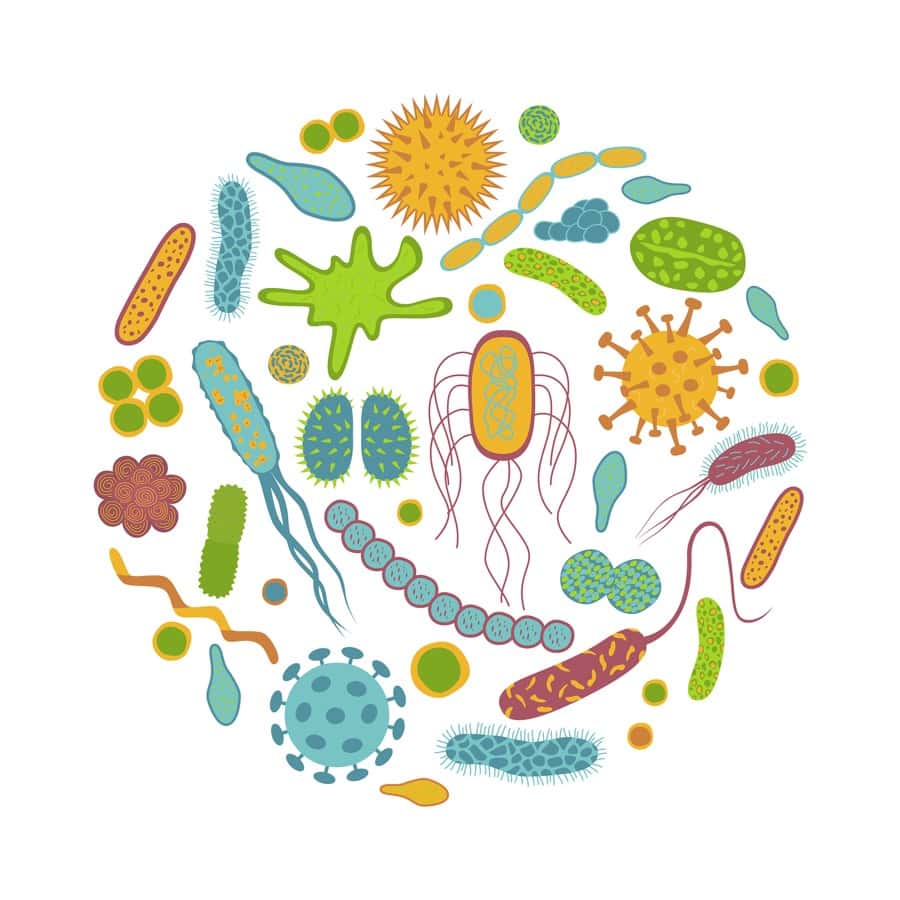
The “royal we” may be more accurate than we imagine, and not only for individuals of noble descent. All of us might practice thinking of ourselves a a collective. That is because each of us contains more microbes than human cells. Nearly every space in our bodies is occupied by a wide-ranging and unique collection of bacteria, fungi, viruses and other microscopic organisms. This may sound frightening, but in fact many of these life-forms are beneficial to us. In some senses, they ARE us. You may be wondering, however, whether your microbiota change under the influence of certain drugs.
Changing Your Microbiota:
Q. I have been hearing about the importance of the intestinal microbiota for our health. How do drugs such as Nexium affect these microbes that live in our digestive tracts over the long term?
A. Investigators have found that acid-suppressing drugs such as esomeprazole (Nexium) can alter the balance of bacteria in our digestive tracts (Takagi et al, Journal of Clinical Biochemistry and Nutrition, Jan. 2018). Such changes may predispose people taking these PPI medications (including lansoprazole, omeprazole and others) to intestinal infections with C. difficile.
Some researchers believe that:
“the effects of PPI are more prominent than the effects of antibiotics or other commonly used drugs” (Imhann et al, Gut, May 2016).
PPIs such as Nexium, Prevacid or Prilosec are not the only potential culprits, however. Other medications may also change the balance of your microbiota.
One research team surveyed the medical literature and concluded:
“Moreover, we found that it is not only PPIs, but also antibiotics, antidepressants, statins and other commonly used medication were associated with distinct gut microbiota signatures. As a consequence, commonly used medications could affect how the gut microbiota resist enteric infections, promote or ameliorate gut inflammation, or change the host’s metabolism” (Imhann et al, Gut Microbes, Jan. 24, 2017).
Learn More:
If you would like to learn more about your microbiota, how it affects your health and how to take care of it, you may wish to listen to a few of our People’s Pharmacy podcasts. Show 1156, with Drs. Justin and Erica Sonnenburg, focuses intensively on the microbiota of our digestive tracts. Show 1078, with Dr. Robynne Chutkan, describes how to have good digestion. You achieve that by offering your microbiota the nourishment it needs to thrive. Show 1144, with Dr. Michael Bretthauer and Dr. Nicholas Shaheen, offers an update on fecal microbiota transplantation to help heal the ravages of a serious C. diff infection.
Citations
- Takagi et al, "The influence of long-term use of proton pump inhibitors on the gut microbiota: An age-sex-matched case-control study." Journal of Clinical Biochemistry and Nutrition, Jan. 2018. DOI: 10.3164/jcbn.17-78
- Imhann et al, "Proton pump inhibitors affect the gut microbiome." Gut, May 2016. DOI: 10.1136/gutjnl-2015-310376
- Imhann et al, "The influence of proton pump inhibitors and other commonly used medication on the gut microbiota." Gut Microbes, Jan. 24, 2017. DOI: 10.1080/19490976.2017.1284732

